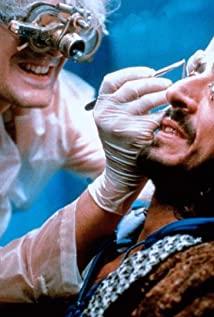In fact, it is not difficult for us to find a trajectory.
Blood represents violence, and violence produces power (not rights).
Mel Gibson's constant bloodbath is actually emphasizing power.
Maybe you would say, isn't the Jesus in the film a symbol of anti-violence?
I think Mel Gibson thinks the same subjectively, and this is also the direction of his creation.
However, it can be seen from his performance techniques that he subconsciously believes in this logic, that violence is power.
In addition to his description of the ignorance of the people, the helplessness of the Roman governor who was benevolent but forced by power (from his superiors and fools), as well as the Jewish attributes intentionally or unintentionally mentioned.
It is not difficult to see that Mel Gibson is actually a strong heroism (it can’t be said to be an elite anymore, he even regarded the high priest as a fool, which is actually challenging procedural justice), worships power, advocates centralization, and opposes Populism (of course populism is not a good thing) Christians.
Coupled with his words and deeds of insulting Jews after drinking.
We can get a sketch like this.
Worship power, advocate violence, like centralization and anti-Semitism.
Who is it like?
I can't think about who he would become if he didn't believe in Christianity.
View more about The Passion of the Christ reviews











